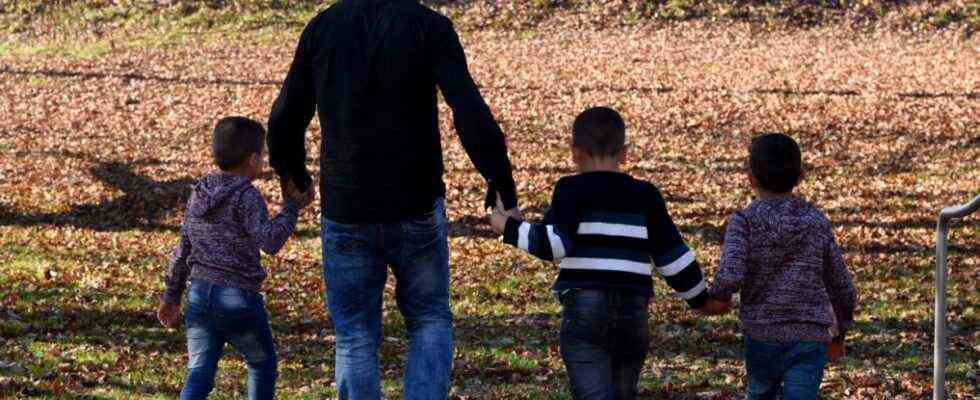Taner I., whose real name is different, has a mischievous smile on his face most of the time during the conversation, and when he talks about his children it expands even more. He is visibly proud of them and only wishes them the best. Unfortunately, he can’t always offer you that at the moment. “I don’t know what to do,” he says again and again when he tells the story of his family, the smile has now disappeared from his face.
Taner I. came to Germany in 2001 for work. Before that, he had dropped out of various university courses in Turkey. “Actually, I always wanted to study medicine,” he says. But nothing came of it, so he moved here with his wife, then came to the district. The first daughter was soon born, followed by four more children, who are now between eight and 17 years old. Taner repeatedly emphasizes that he tried to learn German from the start, but it is still difficult for him. “I went to the mosque in the evening, where we were taught a little German, but I was always so tired, sometimes I fell asleep,” he says with a laugh.
Taner I. did heavy physical labor for 15 years – until it was no longer possible
The tiredness was no accident. Since his arrival, Taner I. worked in difficult physical occupations for which even poor knowledge of German was sufficient. Most recently, he was a production assistant and often had to lift heavy metal sheets above his head – at least eight hours a day, day in and day out. Now he can no longer do that, “my intervertebral discs are broken. My doctor says I can no longer work so hard physically.” That frustrates him because he really wants to do something. That is why he is now intensifying his efforts to learn German.
In addition to the health problems, Taner I. has given up his last position for two other reasons. He was bullied, he said angrily: “I was monitored all the time. If I made just one mistake, I had to immediately do things that I was not responsible for, that I hadn’t signed up for, otherwise they would have me threatened with termination. ” Cleaning things like the fridge at almost minus 20 degrees. “That was inhumane,” he shouts.
The woman has cancer, the daughter diabetes
The second big reason was his health again, this time not his, but that of his wife. In 2014 she got cancer and had to go to the clinic for a year. “I often had to stay at home with the children,” said I. After that nothing was the same as before. Taner I’s eldest daughter is getting worse at school, she is switching from grammar school to secondary school. She also developed an anxiety disorder, “just when you drop something it almost scared her to death,” as I. reports. She’s doing psychotherapy, she’s doing better now. His wife also has to undergo therapy, but at some point she can’t take it anymore, she goes back to Turkey, where she now lives with her family.
Since then Taner I has lived alone with his children, work was out of the question at first, now he is receiving unemployment benefit II. Not least because the children also have to struggle with various health problems, some of them smaller, some larger. One of the two daughters needs braces, nothing unusual. However, the other developed diabetes in 2016. That means not only constant visits to the doctor, but also automatic weight gain. “Five years ago I bought a mattress that no longer fits her,” explains Taner I .. The result: Almost constant back pain that didn’t get any better from sitting around in lockdown.
Not working with four children also means that there is little financial leeway. Although the apartment is nicely furnished and clean, there is still a lot to replace. In addition to the mattress, the dishwasher and washing machine are also old. And then the children also want to go to the sports club, play football and kickboxing, it quickly gets tight.
At the end Taner I. talks again about his children. There is a picture of the oldest daughter next to the television in the living room. “She’s working hard at school right now, she wants to go to FOS and then maybe to university,” says Taner I., now with a smile on his face again.

